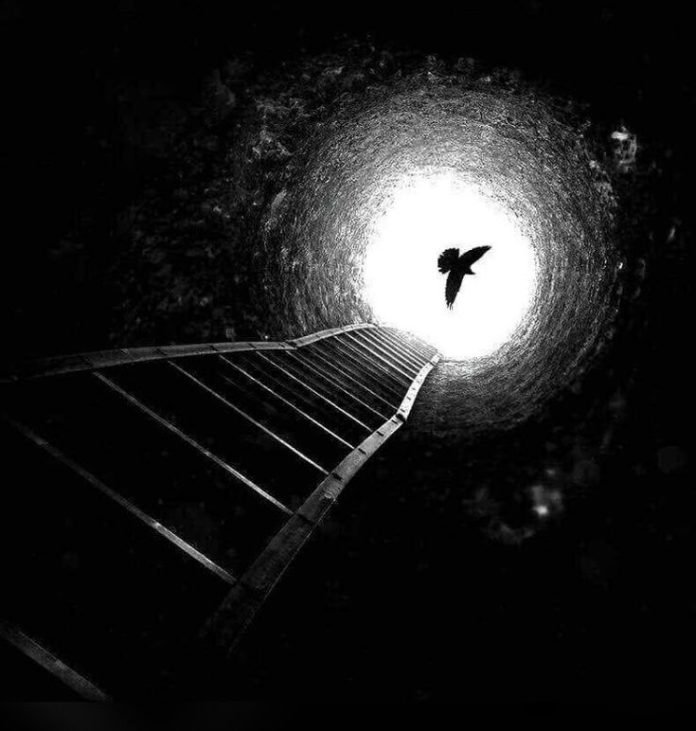“It takes a lifetime to build a reputation and a moment to lose it.”
The moment of impact is different for everyone. Maybe it happened gradually—like cracks in the foundation of a house you ignored until the walls came crashing down. Or maybe it was sudden, like an explosion that left you standing in the ruins of your former life, wondering what the hell just happened.
Maybe you lost your job, your reputation, your marriage. Maybe the people you trusted turned against you. Maybe you made a mistake—one you regret deeply, one that people won’t let you forget. Maybe you did nothing wrong, but life decided to pull the rug from under you anyway.
However you got here, I know this much: it feels like the end.
It’s not.
Right now, the weight of it is unbearable. The voices in your head are loud, telling you that you’ve lost everything, that you’re beyond saving, that you will never recover from this.
Those voices are lying.
You are in the middle of the story, not at the end. But you have to survive this part before you can rebuild. And survival starts with understanding what kind of fall you’ve had.
The Three Types of Falls
Not all falls are the same, but they feel equally devastating. The difference between them is in how they happen—and how you respond.
1. The Self-Inflicted Fall (When You Are the Cause)
This is the hardest one to face because it comes with the heaviest burden: guilt.
• Maybe you made a terrible decision.
• Maybe you let your worst impulses get the best of you.
• Maybe you hurt people—intentionally or unintentionally.
In these moments, the weight of your own mistakes can feel unbearable. Shame creeps in, whispering: “You deserve this. No one will ever forgive you.”
That’s a lie.
What people don’t tell you is that many of the most respected and admired people in history have fallen the hardest. They didn’t rise again by pretending their failures never happened. They rose because they owned their mistakes and built something stronger from them.
Your story is not over because you failed. But the way you handle failure determines what happens next.
2. The Fall from Public Judgment (When Others Turn Against You)
This one is brutal because it feels unfair.
• Maybe you were caught in a controversy, a scandal, or a media trial.
• Maybe you were falsely accused of something.
• Maybe you were just in the wrong place at the wrong time.
People love to watch others fall because it makes them feel better about their own lives. The internet is full of “cancel culture” mobs, waiting to destroy people for their worst moment, even if they have no idea who you really are.
If this is your fall, you probably feel helpless. No matter what you say, people twist it. No matter how much you explain, it’s not enough.
Here’s what you need to know: this is temporary.
Public perception changes like the wind. Today’s villain is tomorrow’s forgotten story. The trick is to outlast the storm and rebuild when the noise dies down.
3. The Fall You Never Saw Coming (When Life Hits You Hard for No Reason)
This is the most unfair type of fall because you didn’t cause it.
• Maybe you lost someone you loved.
• Maybe you got sick.
• Maybe a financial disaster wiped out everything you built.
When life knocks you down like this, it’s easy to feel like a victim. And while you might be right, staying in victim mode won’t save you.
The only way forward is acceptance. Not in a passive, “I give up” kind of way—but in the sense that you stop fighting reality and start asking: “What now?”
Because the truth is, life doesn’t care who deserves what. It just keeps moving.
And if you want to survive, you have to move with it.
The Psychology of Shame, Guilt, and Regret
When you fall, your mind becomes your greatest enemy.
Shame tells you: “You’re worthless.”
Guilt tells you: “You don’t deserve a second chance.”
Regret tells you: “You should have done things differently.”
These voices are powerful. And if you listen to them too long, they can paralyze you.
But here’s something most people don’t understand: Shame, guilt, and regret are not the same thing.
• Shame is believing you are the mistake.
• Guilt is recognizing that you made a mistake.
• Regret is wishing you had done things differently—but now it’s too late.
The first step to getting back up is learning to separate these emotions.
Shame is a liar. It tells you that you are broken beyond repair. You’re not. Shame has no purpose—drop it.
Guilt, when used correctly, is a teacher. If you truly did wrong, guilt is a signal that you have work to do. Listen to it, fix what you can, and then let it go.
Regret is a waste of time—unless it fuels action. You can’t change the past. But you can use it to build a better future.
The Mind is the First Battlefield
Before you can fix your life, you have to win the war in your head.
If you let your mind believe that you are finished, you will be.
If you let your past define your future, it will.
If you let other people’s opinions become your truth, they will.
But if you learn to control your thoughts, rewrite your narrative, and take ownership of your comeback, you will rise again.
The key is to stop seeing your fall as the end of your story.
Because it’s not.
Your fall is the beginning of something new.
The question is: What will you do with it?
What Comes Next?
In the next chapter, we will dive into the abyss—the darkest part of the fall, where hope seems impossible. We’ll talk about how to survive the worst moments, avoid self-destruction, and begin the slow climb back up.
Because no matter how bad things feel right now, you are not done.
The comeback starts here.









